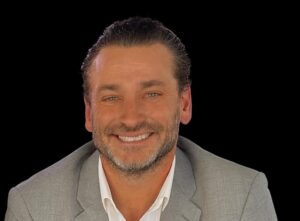In the summer of 2008, as the global financial markets teetered on the brink of collapse, Nicolas Sarkis, a former top banker from Goldman Sachs and founder of asset management firm AlphaOne Partners, received an intriguing proposal. The opportunity presented was to invest in a fund of funds connected to Bernard Madoff, a figure renowned for his consistent returns and prestigious clientele. Sarkis’s subsequent meeting with Madoff would become an unforgettable episode, revealing the unsettling truths behind one of the largest Ponzi schemes in history.
In 2006, after a distinguished career at Goldman Sachs, Nicolas Sarkis established asset management firm AlphaOne Partners. He had been the youngest associate ever hired by Goldman Sachs at the age of 21, after enduring a grueling gauntlet of 52 interviews. Robert K. Steel, a Goldman Sachs partner and the eventual Under Secretary of the U.S. Treasury, recognized his potential, welcoming him into the fold, where he would go on to serve as the Vice-President of Goldman Sachs’s London-based operations by the time he was 26. Over the years, AlphaOne became a leading investment manager, running money across all asset classes for families, foundations, large corporations and sovereign wealth funds. Sarkis also became very active in philanthropy since 2012, becoming a Trustee at Action Against Hunger, one of the leading NGOs fighting acute malnutrition.
By 2008, Sarkis had further solidified AlphaOne’s reputation in the investment world. During this time, he was approached by a representative from a so-called fund of funds, who proposed investing in a fund managed exclusively by Bernard Madoff. At the time, Madoff was a highly regarded Wall Street figure, one of the richest men in the USA, the former President of Nasdaq, and a special adviser to US President George W. Bush.
However, Sarkis immediately noticed something unusual: the fund of funds had only one manager, Madoff, which was atypical for a strategy whose “raison d’etre” is to diversify its investments among multiple managers. This anomaly, combined with the salesperson’s singular focus on past performance without any discussion of the underlying investment strategy, raised Sarkis’s suspicions. The promise of over 20 years of consistent, positive monthly returns with no downturns seemed too good to be true.
Cautious but curious, Sarkis was not just content with Madoff’s impressive CV and he requested a one-on-one meeting with him. The salesperson’s response, suggesting that meeting Madoff would be more challenging than meeting the Queen of England or the Pope, struck Sarkis as odd. Determined to understand the truth behind this enigmatic figure, Sarkis decided to take a direct approach. He quickly located Madoff’s contact information and cold-called him. To his surprise, he was able to set up a meeting with him without difficulty.
Unlike many investors who might have taken the fund’s stellar track record at face value and invested without further inquiry, Sarkis adhered to a core principle of AlphaOne Partners: only invest in what you understand. This philosophy, influenced by the investment strategy of David Swensen at Yale, emphasizes deep comprehension of an investment’s underlying mechanisms and risks. Sarkis’s insistence on understanding the investment before committing funds was a fundamental part of this philosophy.
In December 2008, Sarkis flew to New York to meet with Madoff. The experience was surreal; Madoff, then a highly respected and affluent figure, greeted him with exceptional charm. For the first hour, the conversation was personal, focusing on their families rather than business, a tactic that Sarkis recognized as an attempt to build an emotional connection.
When the discussion finally turned to business, Madoff’s description of his investment strategy was strikingly simple and suspicious. He described using a strategy called a “collar,” involving buying stocks, purchasing a put option, and selling a call option. This method, which limits both losses and gains, seemed inconsistent with the high, consistent returns Madoff claimed to achieve. Sarkis, with his extensive financial experience, knew that such a strategy couldn’t possibly account for the results Madoff was touting.
Throughout the meeting, more red flags emerged. Madoff appeared unfamiliar with standard due diligence procedures, such as providing a due diligence questionnaire, a basic requirement for any legitimate fund manager. His insistence that all transactions go through him, with Madoff as the custodian, was highly irregular. Furthermore, Madoff’s casual name-dropping of well-known clients, intended to impress, had the opposite effect. In the financial industry, client confidentiality is crucial, and sharing client names is considered unprofessional and unethical. Last but not least, Madoff did not even use email and insisted on verbal and fax communication exclusively.
Sarkis suspected that Madoff might have been involved in a form of front running, a practice where a broker trades ahead of their clients based on advance knowledge of pending orders. Given Madoff’s extensive operations as a broker-dealer, through which a significant portion of NYSE trading flowed, Sarkis theorized that Madoff could have been using this privileged information to trade on baskets of stocks rather than individual stocks to avoid detection. However, Sarkis had no concrete evidence and was left with an unsettling feeling about the entire setup.
Sarkis’s decision not to invest was vindicated as, a few days after the meeting, Bernard Madoff was arrested by the FBI. The man who had been hailed as a financial genius was revealed to be at the center of a massive Ponzi scheme, estimated at $65 billion. The arrest exposed the extent of the fraud and the gullibility of many experienced investors and regulators who had been deceived.
For Sarkis, the revelation was both a relief and a sobering lesson. His instincts and professional skepticism had saved him from becoming another victim of Madoff’s deceit. The experience underscored the importance of thorough due diligence and the necessity of questioning even the most established figures in the financial world.
Reflecting on the encounter, Sarkis recognized the warning signs that were evident in hindsight. The lack of transparency, Madoff’s inadequate explanations, and the unusual business practices all pointed to something amiss. Sarkis’s experience serves as a stark reminder of the need for critical scrutiny in the investment process, no matter the reputation of the individuals involved.
The encounter was a defining moment in Sarkis’s career, reinforcing his commitment to transparency and ethical standards. It also highlighted the potential pitfalls in the financial industry, where even the most reputable figures can engage in unethical practices and where the most respectable financial institutions (UBS, Santander, Societe Generale, etc.) can fall victim to fraud when individuals working for such firms forget the importance of common sense. For Sarkis, the episode is not just a personal anecdote but a cautionary tale for all investors, emphasizing the need for constant vigilance and skepticism.
As he was probably the last investor that Madoff tried to defraud before getting caught, Nicolas Sarkis’s encounter with Bernie Madoff offers valuable insights into the risks and challenges of the investment world. It underscores the critical importance of due diligence and ethical conduct in finance. As the industry continues to evolve, the lessons from the Madoff scandal remain relevant, reminding investors to remain vigilant and not be afraid to ask questions.
For Sarkis and AlphaOne Partners, the principle of investing only in what one truly understands remains a guiding tenet. This approach not only protected Sarkis from a potential financial disaster but also served as a crucial lesson for investors everywhere: understanding and scrutiny are indispensable in navigating the complex world of investments.








